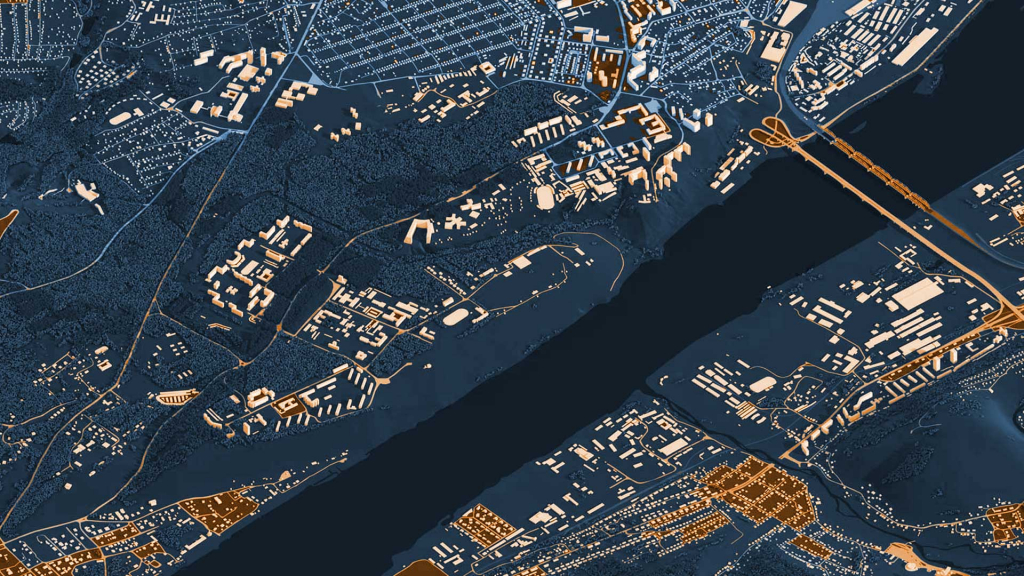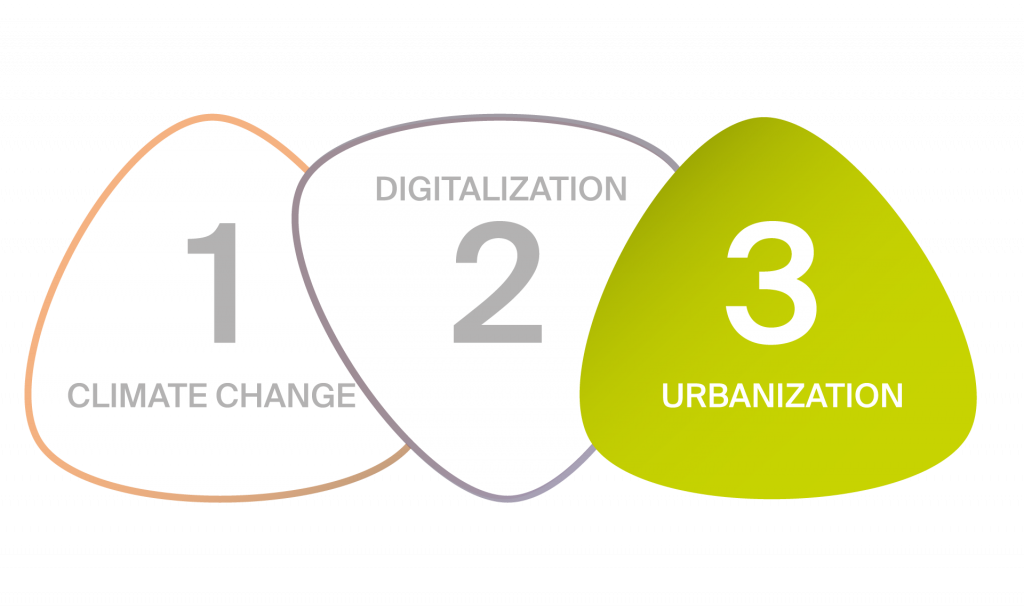
Cities generate 80% of the world’s GDP and CO2 emissions and consume 75% of its resources, meaning they are instrumental to the societal and ecological transition under way.
Today’s cities are composed of complex systems involving stocks and flows of energy, information, materials, goods and people. They are undergoing rapid change in how they function and how they are used, triggered by the pervasiveness of modern technology and the development of the sharing economy. In fact, cities are now dependent on supplies coming from the suburban and rural areas that surround them.
A Cluster set up to take up one of ENAC’s three sustainability challenges:

Shaping sustainable cities will require a rethink of how we view urbanization and cities in general. By considering a city as a system of systems, we can develop a holistic vision that incorporates the interdependencies of people, goods and their transport, as well as of energy production, energy efficiency, urban planning, urban ecology and urban metabolism. This fresh approach will equip us to address the challenges that urbanization poses to the societal and ecological transition.
Our research in this Cluster is focused on three priority areas:
By considering a densely populated city and its suburbs as a system of systems, we can enact a paradigm shift towards more human-focused and locally oriented policy and practice in the areas of housing and transportation. This shift will, in turn, give rise to more efficient resource use and inject renewed dynamism into local social and economic networks. For instance, planning policy that emphasizes community activities is consistent with both the principles of sustainability and the individual and collective lifestyles to which people aspire.
Our researchers are studying the spatial structure of cities and regions, and of the flows that characterize them, from a multi-scale perspective.
At a time when growing population density and urbanization are making urban planning an increasingly complex field, our experts are leveraging the benefits of advanced technology (smart sensors, field robotics, spatial data visualization, and digital modeling and design) to address issues ranging from land-use change, housing and transportation, to public health, water supply and waste management.
As patterns of urbanization evolve and the boundaries between cities and their suburbs become blurred, there is a pressing need to rethink the relationship between urban and rural areas in areas like food and public health. At ENAC, we are working on new approaches and strategies for analyzing and modeling how land-use changes affect urban development, focusing on aspects such as urban heating systems and urban agriculture. As vital sources of insight for new city management practices, big data and AI are helping reconfigure the way in which researchers interact with businesses and wider society.
Interdisciplinarity on the teaching side:
As part of this focus area, we are setting up new teaching programs to equip tomorrow’s architects and civil and environmental engineers with the skills they need to drive the societal and ecological transition towards more sustainable urban development.